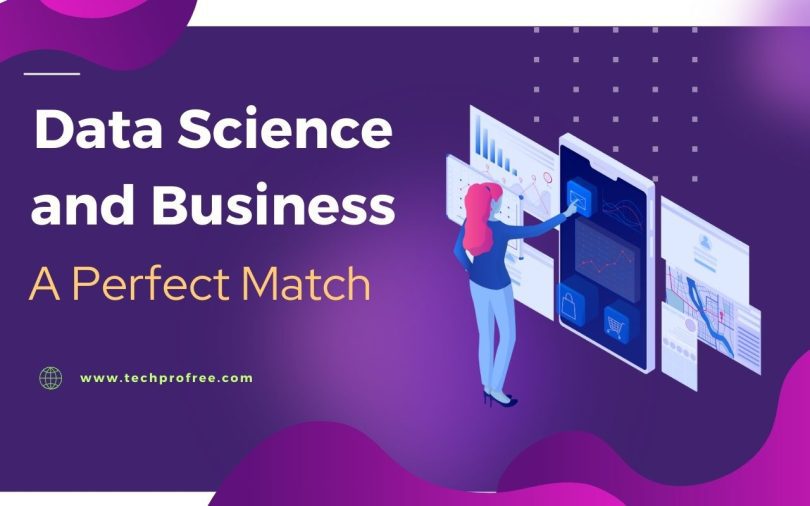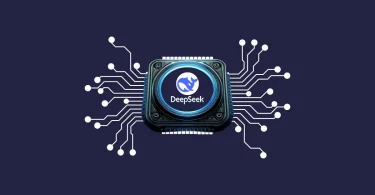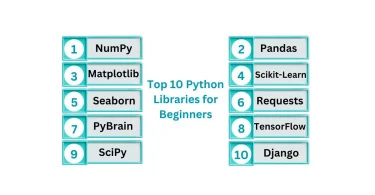Data science functions as an informational detective. It combines math, computer expertise and creative thinking to reveal practical truths hidden in business data. People who know these tricks can make wiser decisions and build future plans.
Data science is expanding quickly as there is an abundance of data everywhere. Some people even consider it the most fabulous job of the 21st century. Businesses heavily rely on data scientists to break down all the information and provide them with insightful suggestions for how to improve business operations.
Key Data Science Steps: Collecting, Organizing and Analyzing Data
Data science encompasses a multitude of procedural stages:
- Data Acquisition: First, we collect various types of data from multiple sources, such as websites or machines. These details may include client information or photos, numbers and words.
- Storing and Sorting: Data needs to be organized because it comes in a variety of forms and dimensions, therefore we need to store and sort it. Imagine putting your toys in the appropriate boxes. This results in a more straightforward and manageable workflow.
- Verifying Data:Carefully examine the data to discover unexpected things. Like going on a treasure hunt. We look for trends, oddities, or things that jump out in the data.
- Discussion about It: Then Organizations communicate what they have learned to others. To assist people in comprehending, companies create reports and images. Everyone can utilize the information in this way to make wiser decisions.
Business Intelligence (BI) vs. Data Science: Key Differences.
While both fields involve handling data, it’s important to note that data science and business intelligence are distinct disciplines.
Business Intelligence:
Consider business intelligence (BI) as a valuable tool that helps in extracting significant insights from data. It’s similar to using a map to navigate. BI examines the history and assists in making judgments based on the past. It emphasizes describing things and works well for structured data.
Data Science:
Data science is similar to a detective who makes future predictions. It makes predictions about potential outcomes using data but not past experience. It exhibits greater adaptability, capable of managing various types of data, even when it is unstructured or disorganized. Data science is useful for identifying trends and making predictions.
But do you know what’s cool? Some clever businesses combine BI with data science to fully comprehend and harness their data.
Essential Data Science Tools for Detectives and Analysts:
The toolset of a data detective is analogous to data science tools. Data scientists can find hidden insights in data with the aid of these technologies. To do this, they employ programming languages.
The following are a few of the essentially key tools:
R Studio: In R Studio Think of it as a unique language and workplace for arithmetic and graphing. It works well for statistics and creating images.
Python: Consider Python to be a dynamic, versatile language. It’s like having a toolbox full of practical implements. NumPy and Pandas are two Python packages that facilitate rapid data analysis.
Data scientists use resources like GitHub and Jupyter notebooks to share their detective findings.
A user-friendly design appeals to data analysts. There are two typical tools for this:
SAS: This is a kind of posh toolkit that aids in data analysis, reports and forecasting the future. It benefits businesses.
Consider IBM SPSS to be a potent toolset. It can handle massive data and perform complex math. Additionally, it works well with various applications and is useful for predictions.
In their professional endeavors, data scientists frequently employ big data tools like Apache Spark and NoSQL databases. These technologies work with a lot of data.
Data scientists utilize technologies to make images to illustrate their findings. Data analysts have a range of tool options at their disposal, from basic ones like Excel to more advanced platforms like Tableau and IBM Cognos. For creating interactive images, free technologies like D3.js are also available.
Data detectives employ frameworks like PyTorch, TensorFlow, MXNet and Spark MLib to train computers to acquire knowledge.
Now, many businesses employ technologies to assist average individuals in doing their own data investigations because knowing all this might be challenging. These tools simplify tasks even for those who may not possess advanced expertise. The term citizen data scientist refers to this.
Anyone can use these products’ automation and user-friendly interfaces to improve the business. They also facilitate improved collaboration between professionals and ordinary people.
Empowering Data Science with Cloud Computing:
Occasionally data detectives require a lot of computing power and storage. In this, cloud computing is useful. It’s similar to renting a supercomputer.
It’s like having a huge data locker while using cloud storage. It has a large capacity, even for enormous data. Additionally, data investigators can request additional power from the cloud at any time. This is excellent for quick projects.
Clouds may be used by both large and small businesses because of their flexible payment options. Additionally, you frequently get pre-assembled toolkits with them, so you don’t have to set everything up yourself. Everyone can now perform data science and derive intelligence from data more easily as a consequence.
Impact of Data Science on Business:
Data science is crucial for many business applications. Here are a few instances:
AI-Powered Faster Loans: A global bank employs data science and AI to provide loans fast through a mobile app. To determine who qualifies for a loan, advanced computer programmes are used, which accelerates and secures the process.
3D-Printed Sensors for Driverless Vehicles: A business in the electronics industry is producing ultra-modern 3D-printed sensors for self-driving automobiles. To assist these sensors in perceiving things in real time and make automobiles safer, they use data science methods.
Increasing Customer Service: Data science is used by a company that creates software for robots to make their programmes smarter. This makes customers happier by enabling customer support personnel to respond to inquiries more quickly.
Tech companies are using data science that works with TV shows to determine what audiences prefer. They analyze real-time viewership data with specialized computer programmes.
Smart Police: To more effectively combat crimes, the police force leverages data science. In order to determine where and when to deploy more police officers, they employ computers to analyze past crimes. This enhances the security of the community.
Predicting Medical Risks: A technology business in Shanghai utilizing artificial intelligence to assist doctors in predicting medical risks. Computers are used to examine patient information and identify those who may experience a stroke. This aids in improving patient care for doctors.
These are just a few instances of how data science improved our quality of life as a whole. Businesses can operate more quickly, produce goods that are better and keep people safe and healthy.
Conclusion:
In conclusion, data science has emerged as the quintessential detective of the digital age, unraveling hidden truths within business data through a blend of mathematical prowess, technical acumen and innovative thinking. As we navigate the vast ocean of data surrounding us, data scientists serve as the compass guiding organizations toward informed decisions and strategic planning. One of the most interesting professions of the twenty-first century, this quickly developing field is also recognized as a game-changer for corporations. It differs from Business Intelligence (BI) in that it is predictive, adaptable to many data types; and capable of spotting patterns and trends. Additionally, user-friendly technologies and cloud computing democratize access to data insights, so data science isn’t just the purview of professionals. undoubtedly, data science has a beneficial impact on business, transforming financial services and enhancing product safety and consumer experiences.




Leave a Comment